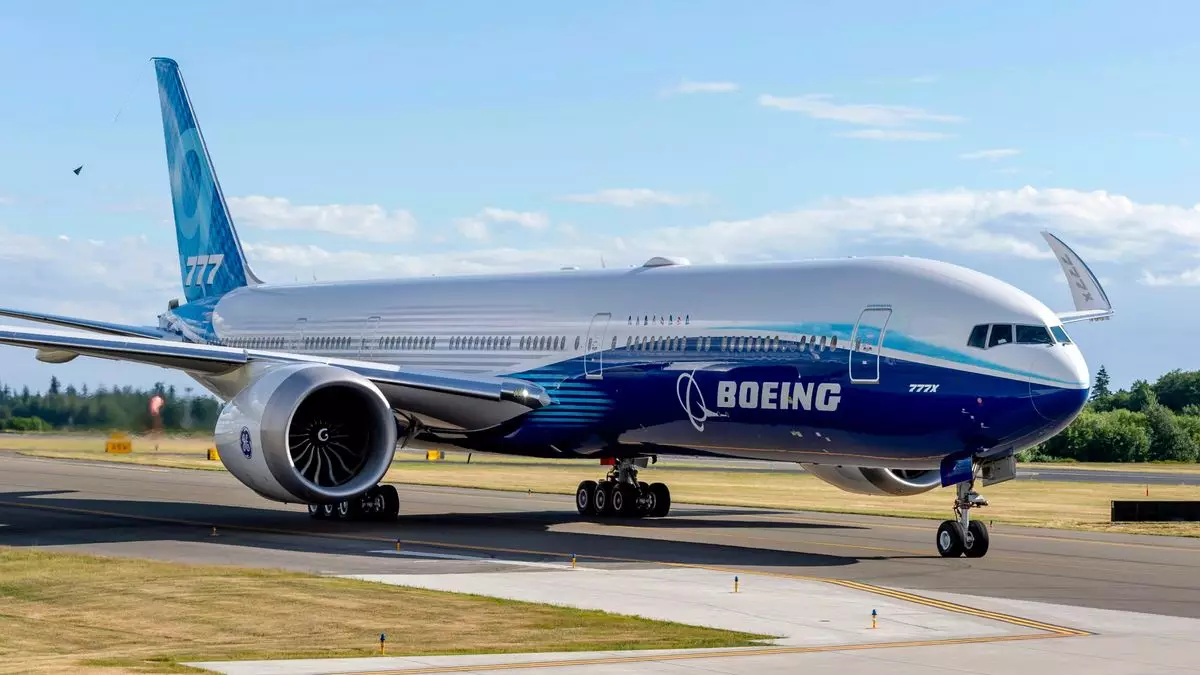In a significant development for the aerospace industry, Boeing factory workers have voted to accept a new contract, effectively ending their strike that lasted for over seven weeks. The acceptance of the contract looks to restore production of Boeing’s best-selling airliners and is critical for the company as it seeks to recuperate from severe financial setbacks. The International Association of Machinists and Aerospace Workers (IAM), which represents approximately 33,000 workers at Boeing’s Seattle facilities, confirmed that 59% of voting members endorsed the fourth proposal from the company, marking the third offer put to a vote.
This contractual agreement promises a 38% wage increase spread over four years, along with additional bonuses for both ratification and productivity. However, it is important to note that Boeing did not acquiesce to the workers’ requests for a restoration of a pension plan that has been suspended since 2014. The strike, which idled production lines for 53 days, represented a critical moment in labor relations within the aerospace sector.
Corporate analysts at Bank of America estimated that Boeing incurred losses of about $50 million each day during the strike, highlighting the financial urgency behind the negotiations. Fortunately for Boeing, the strike did not extend to its nonunion manufacturing plant in South Carolina, where the company continues to produce its 787 Dreamliners. Boeing’s leadership, including CEO Kelly Ortberg, expressed relief upon reaching a resolution to the labor dispute, emphasizing the need for unity and collaboration to move the organization forward. Ortberg acknowledged the challenges faced during the strike, framing it as an opportunity for improvement and reconstruction.
The first day that affected workers can return to their jobs might be as soon as Wednesday, though additional retraining may be necessary, potentially delaying full production. Under the new agreement, Boeing machinists will see an average salary rise from approximately $75,600 to $119,300 by the contract’s conclusion.
Despite the optimism surrounding the contract’s acceptance, reactions among union members reveal a complex sentiment. While some workers like William Gardiner touted the agreement as a positive step forward, others expressed disappointment. Eep Bolaño, a Seattle calibration specialist, voiced her dissatisfaction, feeling that workers had made a necessary but frustrating decision under pressure from a struggling company. She described the negotiations as “humiliating,” reflecting the broader frustration within the workforce about the perceived inadequacy of their demands being met.
IAM District 751 president Jon Holden, on the other hand, characterized the acceptance of the contract as a victory. He emphasized that the union pushed hard for various benefits and ultimately secured substantial gains. Union leaders had advocated for acceptance by highlighting the financial burden a prolonged strike would pose on workers as well as on Boeing’s financial health.
President Joe Biden applauded both the union efforts and Boeing’s willingness to reach an agreement, noting the contract’s importance in ensuring workers receive fair compensation while also securing Boeing’s role in the national aerospace sector. The intervention of labor officials from the Biden administration, including acting labor secretary Julie Su, underscores the administration’s intent to support balanced negotiations that benefit workers within key industries.
While the agreement brings a temporary resolution, it does not erase the historical context of labor struggles within Boeing. The recent strike was noted to be the first since 2008 and reflects ongoing tensions between the company and its workers regarding long-standing issues such as pension plans and salary negotiations. In 2008, a similar strike lasted eight weeks, during which Boeing lost approximately $100 million in deferred revenue.
Furthermore, Boeing’s reputation has been shadowed by safety concerns following regulatory investigations related to its 737 Max aircraft, which has faced scrutiny since two tragic incidents claimed hundreds of lives. This backdrop enriches the current narrative as the company grapples not only with labor relations but also with public trust.
For Boeing and its workers, the road ahead is fraught with challenges that extend beyond contractual agreements. As operations resume and production ramps up, both parties must navigate a complex landscape of financial recovery, safety assurance, and labor relations. The recent labor negotiations serve as both a learning experience and a catalyst for necessary organizational changes, positioning Boeing to not only recover but also to redefine its future in a rapidly evolving aerospace industry.


Leave a Reply